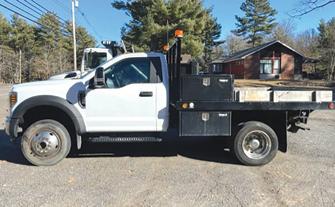
1 minute read
Leaders Question Pricetag of Rail Project, Need for Service
RAIL from page 6 would start at $14 million in 2031 but drop to $200,000 by 2034.
In the event the ridership has a “high pandemic impact,” then those taking the train will only be 58 percent of those levels expected prior to COVID-19.
This would mean the cost to run the rail service would start at $17 million in the first year before dropping to $3.5 million by 2035, the study noted.
Executive Councilor David Wheeler, RMilford, and a longtime opponent of the project, said the construction price tag has gotten much higher than earlier studies showed.

“I was expecting a financial boondoggle and that is exactly [what] the plan has come up with in my view,” Wheeler said.
He said Nashua taxpayers would have to finance at least $21 million in station construction costs.
“I think people are going to get sticker shock when they realize how much this will cost them in higher property taxes,” Wheeler said.
Legislative Backers Still Reviewing Report
Nashua and Manchester mayors, majorities on their town councils, and business leaders are prominent supporters of the project. In fact, officials in both cities are considering creating tax increment financing districts to help pay for the construction work.



A spokesperson for New Hampshire Senate Democratic Leader Donna Soucy of Manchester told the Union Leader that the senator had not seen the report but remains a strong “advocate” for it.
House Democratic Leader Matt Wilhelm of Manchester, who also has supported the project in the past, declined comment until he had reviewed the entire report.
However, Drew Cline, president of the Josiah Bartlett Center for Public Policy, a conservative think tank, said the ridership estimates were wildly optimistic.
“Who thinks it’s a good idea to spend $800 million to build commuter rail from a sparsely populated state to a shrinking city when the number of people who say they want to make a daily commute is also shrinking?” he asked rhetorically.









